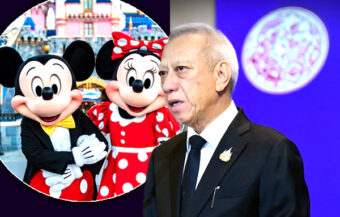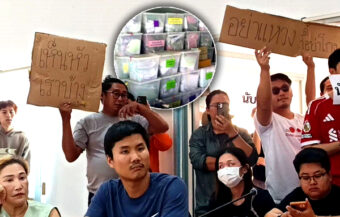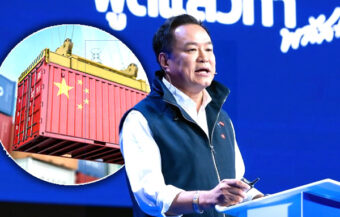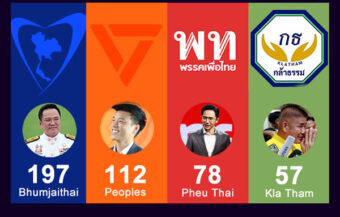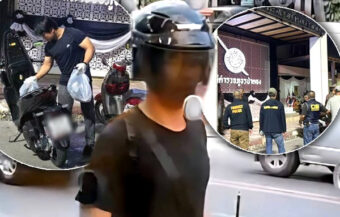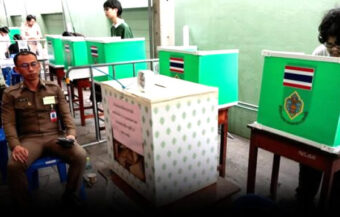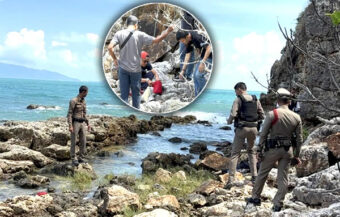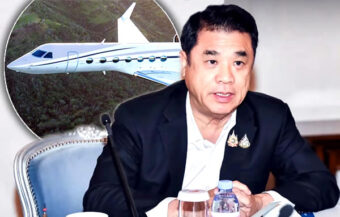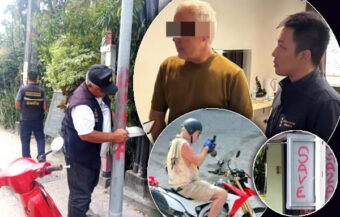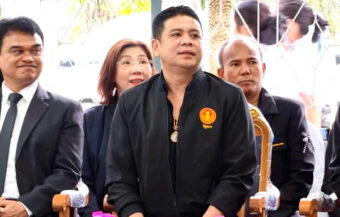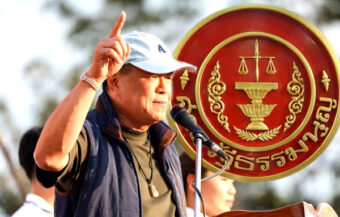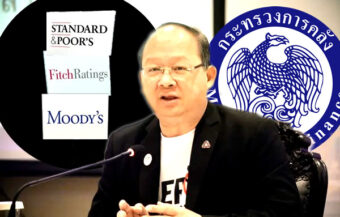Cambodia factor erupts, driving Thai politics and economy toward crisis. Border tensions, scam networks and stalled US trade talks push early 2026 election, heightening instability, corruption scrutiny and voter uncertainty across the nation.
Thai politics and its struggling economy have deteriorated since June, after an unexpected crisis triggered by Cambodian hostilities. Prime Minister Anutin Charnvirakul’s government now faces an earlier election, likely in February instead of March. The Thai-Cambodian border conflict, linked to growing scam networks, fuels the turmoil. The situation has weakened political stability, strained the economy and threatens further mayhem. The United States cancelled critical trade talks last Friday, highlighting the fallout. Concern is growing over Cambodian illegality’s impact on Thai politics and finances, as the full scale of what is still emerging. A web of illicit funding and corruption appears intertwined with Thailand’s already Byzantine and unstable political landscape.
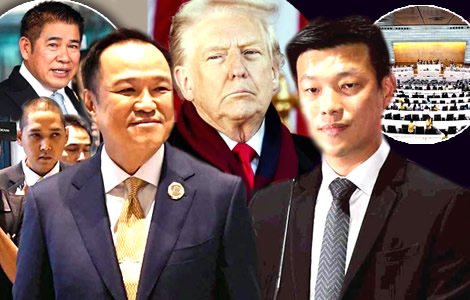
Thailand is moving toward political uncertainty as analysts predict an early General Election in 2026. The minority government of Prime Minister Anutin Charnvirakul faces multiple crises. Observers say the administration may dissolve the House sooner than previously planned.
The government was left reeling after the suspension of trade talks with the United States on Friday night. Sources said Anutin’s comments during a visit to military outposts in Sisaket last Tuesday triggered the US decision. Furthermore, his remarks were described as macho and nationalistic. Officials noted the suspension aligns with broader US strategic considerations.
The US administration has been closely monitoring Thailand’s politics. Additionally, tensions on the Thai-Cambodian border have intensified following recent landmine incidents. Analysts warn these events could complicate domestic politics and foreign relations.
Trump administration warns nationalist fervour in Thailand and Cambodia may trigger war and instability
The Trump administration is concerned that nationalist fervour in both Thailand and Cambodia may unleash a dangerous regional conflict. They are designed to curb the risk of a protracted war, which would cost countless lives and result in economic disaster.
Over the weekend, certainly, some former Thai senior officials concurred. They stated such a trend may threaten economic stability and democratic governance. For instance, on Sunday, Deputy Secretary-General of the National Security Council Lt. Gen. Pongsakorn Rodchomphu weighed in. He warned that a 100-day war with Cambodia would cost Thailand ฿300 billion in discretionary funds, not to mention lost confidence, loss of lives or the perception of instability.
Moreover, political instability risks undermining investor confidence. Analysts cited the influence of grey capital-backed politics and arch-conservative groups. These groups are reportedly anti-American and pro-China.
Since June 2025, National Institute of Development Administration (NIDA) opinion polls have tracked voter sentiment amid the Thai-Cambodian crisis. Undecided voters, particularly in the northeast, make up the largest group. Analysts suggest these voters show limited understanding of national government dynamics. In short, they feel something is not quite right. Consequently, voter indecision may affect the outcome of the next election.
Invisible hand and scam networks pile pressure on government amid weak growth and border tensions
Observers also noted an “invisible hand” at work. It is reportedly linked to scam networks operating in Cambodia and beyond. US intelligence agencies, including the FBI and CIA, are believed to have detailed knowledge of these networks. However, the Thai public and media remain largely unaware of the full scope.
Economic indicators add to the government’s pressure. The National Economic and Social Development Council (NESDC) on Monday reported a 0.6% contraction in the third quarter of 2025. Annual growth for next year is projected at 1.7%, below expectations. Weak manufacturing and disappointing foreign tourism are contributing to the slowdown. Furthermore, US tariffs and a challenging export environment add to the economic strain.
Border tensions have also worsened with disputes over land areas and landmine incidents, suggesting fragile security. In addition, such events fuel nationalist sentiment domestically. However, government rhetoric emphasising nationalism may not stabilise economic expectations.
Prime Minister Anutin has signalled he will maintain a nationalist policy line. Additionally, the Royal Thai Police have launched operations targeting foreigners allegedly involved in scam networks.
Klatham Party remains in coalition as Pheu Thai plans no-confidence move against the government
Despite pressure, he refused to remove the Klatham Party from his coalition. The party remains linked to alleged illegal activity through key MPs and Deputy Prime Minister Thamanat Prompow.
The People’s Party (PP), which facilitated Anutin’s premiership, is reconsidering its support. The party emphasises constitutional reform as its main priority. It has insisted on a parliamentary session beginning December 8 to advance the amendment process.
The session is expected to complete the second reading of the constitutional bill before year-end. However, the Bhumjaithai-controlled Senate could delay the process.
The Pheu Thai Party is preparing a no-confidence motion against the government. Party leaders cited corruption, involvement in grey businesses and failure to address online scams. Furthermore, People’s Party firebrand MPs like Rangsiman Rome highlighted connections between cabinet members and scam networks. Consequently, analysts predict that a government collapse before the end of December is increasingly likely.
Government under scrutiny for cybercrime, border incidents and failing economic performance
The government faces scrutiny over cybercrime and cross-border scams. Deputy Prime Minister Thamanat Prompow, previously jailed in Australia on drug charges, is under continued investigation.
Additional scrutiny targets MPs, media figures, and supporters of the Klatham Party involved in alleged illegal activity. Some MPs had assets worth hundreds of millions of baht seized in connection with online gambling allegations.
External security concerns remain acute. On November 10, four Thai soldiers were injured by a landmine in Sisaket province. Analysts suggest the incident may have been used to divert attention from investigations into scam networks. Observers also note that Cambodia may have strategic motives for maintaining border tensions.
Economic underperformance is another key challenge. Thailand’s GDP grew 1.2% in the third quarter of 2025, below the 1.6% median forecast. Growth slowed from 2.8% in the previous quarter. Quarterly contraction stood at 0.6%, marking the first decline since 2022. Analysts noted that exports, manufacturing, construction, government spending and tourism all weakened.
Government stimulus as Bhumjaithai legal issues loom amid Senate election and land holdings probes
In response, the Anutin government launched a ฿44-billion stimulus program. The “half-half” subsidy scheme helps low-income consumers buy basic goods at half price. Additionally, loyalists were placed in senior civil service positions. Analysts view this as a strategic move to control provincial budgets and prepare for elections.
It is also suspected that the Bhumjaithai Party-led government may be addressing legal difficulties. At length, it faces challenges over the controversial Senate election in 2024. A committee with the Election Commission this year recommended court actions against 229 people.
This list includes Prime Minister Anutin Charnvirakul. Basically, it is alleged that a massive scheme, supported by financial resources, caused the party to control the country’s upper house. In addition to this, there are alleged illegal land holdings in Buriram associated with the party’s founders, the Chidchob family.
The Bhumjaithai Party (BJT), led by Anutin, holds significant cabinet control. The party has relied on coalition allies, including Klatham and United Thai Nation, to maintain governance.
Parliament oversight, border tensions, and election timing shaping BJT strategy for early 2026 poll
Observers note that parliamentary oversight and administrative resources are being leveraged to sustain power. Analysts warn that Anutin could use border tensions to influence election timing. He will also undoubtedly use it to rally nationalist fervour.
The People’s Party, meanwhile, emphasises adherence to the constitutional amendment process. Section 256 amendments are scheduled for second reading before the regular December session.
Party leaders stated that if the government fails to convene the extraordinary session, they will submit a no-confidence motion immediately. They also clarified that Pheu Thai may independently file a motion without PP’s approval.
The four-month memorandum of agreement (MoA) between BJT and the People’s Party initially pinned Lower House dissolution to January 31 2026. The planned election was scheduled for March 29. Analysts now suggest a February election is possible within the 60-day constitutional window. They predict a three-way contest between the Bhumjaithai Party, Pheu Thai and the People’s Party.
BJT leverages budget, nationalist sentiment and populist policies while corruption threatens stability
BJT has advantages as the ruling party. The administration controls the state budget and can implement populist policies. These include co-payment schemes and cash handouts. Moreover, nationalist sentiment around the Thai-Cambodian border conflict is being leveraged for political gain. Analysts warn, however, that unresolved issues, including scam networks and flood mismanagement, remain risky.
Deputy Finance Minister Vorapak Tanyawong resigned amid allegations linking him to suspected Cambodia-based financial misconduct.
Meanshile, other investigations have identified links to a financial clique in Bangkok with government connections. Opposition MPs are exposing Cambodia-based cyberfraud, human trafficking and money laundering through Thailand.
Key figures include Chen Zhi of Prince Group, Hun To of Huione Group, and Benjamin Mauerberger. The US Treasury confiscated nearly $5 billion in assets linked to these networks. The UK, South Korea, Taiwan, and Singapore also pursued action against these entities.
Significantly, this is still an emerging story with the potential for further bombshells. Indeed, there is anxiety among Thai financial regulators about what might emerge and the real possibility of sanctions being pursued by the United States and other countries.
Complex investigations and intelligence reports add pressure as parliamentary scrutiny continues
At this time, there is a labyrinth of unexplained situations, links, and other matters before Thai parliamentary inquiries. We can only surmise what information exists among the United States and United Kingdom intelligence agencies. Hence, the trepidation and the reason the People’s Party insists on elevating the issue.
Allegations suggest ties between Thai officials and international scam networks. For instance, Prince Group rented office space in a family-owned building of Anutin. The PM quickly denied any significance in this. In brief, it was a minor matter and something beyond his control. He affirmed that he had no business relationship with the Cambodian entity beyond this.
Nonetheless, photographs circulated online show Mr Benjamin Mauerberger with senior Thai officials. Notably, Mr Mauerberger himself denies any wrongdoing. Indeed, he sued Rangsiman Rome MP. At the same time, the appointment of his lawyer in this case to the Prime Minister’s Office in recent weeks has raised eyebrows. The lawyer is also part of Deputy Prime Minister Thamanat Prompow’s legal team. Analysts note that while the government publicly emphasises action against scammers, enforcement has been limited.
Eye popping appointment of Ben Smith’s ex lawyer as an official at the Prime Minister’s Office defended
The mix of border tensions, corruption investigations and election politics complicates ongoing government activities. Analysts say nationalist rhetoric may divert attention from scams and bolster electoral prospects.
The People’s Party must balance loyalty to the MoA with pressure from corruption allegations. Meanwhile, Pheu Thai is preparing a no-confidence debate to challenge Anutin.
Voter pathy and economic stagnation leave Thailand’s election outcome and prospects highly uncertain
Public sentiment remains uncertain. High voter indecision persists, particularly in northeastern provinces. Analysts attribute this to a limited understanding of developments, corruption scandals and nationalist messaging. Consequently, the election outcome remains difficult to predict.
Thailand’s economic growth for 2026 is projected at 1.6% to 1.7%. Structural problems, including household debt, remain largely unresolved. Analysts note that political instability and border tensions may worsen economic conditions.
At the end of the day, Thailand faces massive political, economic and security instability. The Anutin administration appears to be at sea with corruption allegations, scam networks and nationalist inclinations. Opposition parties are discussing a no-confidence motion while pursuing constitutional change, which is unlikely despite the high hopes.
Thailand shocked as United States shelves trade talks after Prime Minister’s call with Trump on Friday
Kla Tham Party and Deputy Prime Minister Thamanat Prompow at the bull’s eye of Thailand’s political storm
People’s Party and Pheu Thai to hold talks amid a growing public unease over Cambodian grey capital
Former minister and party leader Sudarat warns of ฿20 billion plot by ‘Scambodia’ to take political power
Border tension with Cambodia will also continue to influence domestic and foreign policy. Analysts predict an early election, likely in February, with a three-way contest shaping the political landscape. However, there are at this time very limited grounds for hope. That would require a decisive election outcome, which appears particularly unlikely. A confused and disillusioned electorate has seen too many political hopes dashed.
In the meantime, the country has found itself embroiled in a newly escalated conflict with Cambodia, which is somehow linked to rising reports of corruption. Economic metrics at the same time are going south.
Join the Thai News forum, follow Thai Examiner on Facebook here
Receive all our stories as they come out on Telegram here
Follow Thai Examiner here
Further reading:
Trump brokered peace pact between Thailand and Cambodia suspended after landmine attack this week
Prime Minister Anutin signs accord with Cambodia witnessed by US President Trump in Kuala Lumpur
Trump to oversee ground breaking new deal between Thailand and Cambodia on Saturday to map border
High powered, secretive meeting chaired by PM agrees robust action against Cambodian networks
Thailand and Cambodia face danger from ‘Dragon Head’ the Chinese mafia leader behind the scams

